#Logging
Text
The World's Forests Are Doing Much Better Than We Think
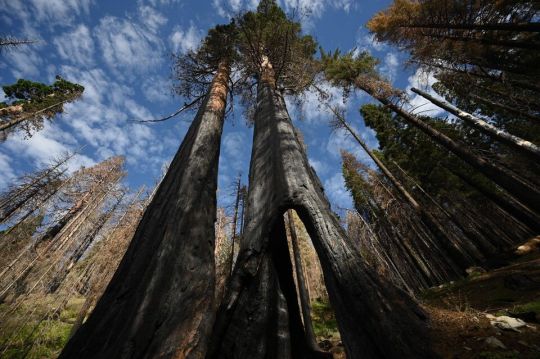
You might be surprised to discover... that many of the world’s woodlands are in a surprisingly good condition. The destruction of tropical forests gets so much (justified) attention that we’re at risk of missing how much progress we’re making in cooler climates.
That’s a mistake. The slow recovery of temperate and polar forests won’t be enough to offset global warming, without radical reductions in carbon emissions. Even so, it’s evidence that we’re capable of reversing the damage from the oldest form of human-induced climate change — and can do the same again.
Take England. Forest coverage now is greater than at any time since the Black Death nearly 700 years ago, with some 1.33 million hectares of the country covered in woodlands. The UK as a whole has nearly three times as much forest as it did at the start of the 20th century.
That’s not by a long way the most impressive performance. China’s forests have increased by about 607,000 square kilometers since 1992, a region the size of Ukraine. The European Union has added an area equivalent to Cambodia to its woodlands, while the US and India have together planted forests that would cover Bangladesh in an unbroken canopy of leaves.
Logging in the tropics means that the world as a whole is still losing trees. Brazil alone removed enough woodland since 1992 to counteract all the growth in China, the EU and US put together. Even so, the planet’s forests as a whole may no longer be contributing to the warming of the planet. On net, they probably sucked about 200 million metric tons of carbon dioxide from the atmosphere each year between 2011 and 2020, according to a 2021 study. The CO2 taken up by trees narrowly exceeded the amount released by deforestation. That’s a drop in the ocean next to the 53.8 billion tons of greenhouse gases emitted in 2022 — but it’s a sign that not every climate indicator is pointing toward doom...
More than a quarter of Japan is covered with planted forests that in many cases are so old they’re barely recognized as such. Forest cover reached its lowest extent during World War II, when trees were felled by the million to provide fuel for a resource-poor nation’s war machine. Akita prefecture in the north of Honshu island was so denuded in the early 19th century that it needed to import firewood. These days, its lush woodlands are a major draw for tourists.
It’s a similar picture in Scandinavia and Central Europe, where the spread of forests onto unproductive agricultural land, combined with the decline of wood-based industries and better management of remaining stands, has resulted in extensive regrowth since the mid-20th century. Forests cover about 15% of Denmark, compared to 2% to 3% at the start of the 19th century.
Even tropical deforestation has slowed drastically since the 1990s, possibly because the rise of plantation timber is cutting the need to clear primary forests. Still, political incentives to turn a blind eye to logging, combined with historically high prices for products grown and mined on cleared tropical woodlands such as soybeans, palm oil and nickel, mean that recent gains are fragile.
There’s no cause for complacency in any of this. The carbon benefits from forests aren’t sufficient to offset more than a sliver of our greenhouse pollution. The idea that they’ll be sufficient to cancel out gross emissions and get the world to net zero by the middle of this century depends on extraordinarily optimistic assumptions on both sides of the equation.
Still, we should celebrate our success in slowing a pattern of human deforestation that’s been going on for nearly 100,000 years. Nothing about the damage we do to our planet is inevitable. With effort, it may even be reversible.
-via Bloomburg, January 28, 2024
#deforestation#forest#woodland#tropical rainforest#trees#trees and forests#united states#china#india#denmark#eu#european union#uk#england#climate change#sustainability#logging#environment#ecology#conservation#ecosystem#greenhouse gasses#carbon emissions#climate crisis#climate action#good news#hope
3K notes
·
View notes
Text
Greenwashing set Canada on fire
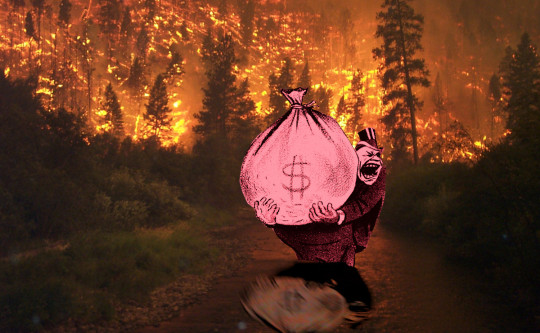
On September 22, I'm (virtually) presenting at the DIG Festival in Modena, Italy. On September 27, I'll be at Chevalier's Books in Los Angeles with Brian Merchant for a joint launch for my new book The Internet Con and his new book, Blood in the Machine.

As a teenager growing up in Ontario, I always envied the kids who spent their summers tree planting; they'd come back from the bush in September, insect-chewed and leathery, with new muscle, incredible stories, thousands of dollars, and a glow imparted by the knowledge that they'd made a new forest with their own blistered hands.
I was too unathletic to follow them into the bush, but I spent my summers doing my bit, ringing doorbells for Greenpeace to get my neighbours fired up about the Canadian pulp-and-paper industry, which wasn't merely clear-cutting our old-growth forests – it was also poisoning the Great Lakes system with PCBs, threatening us all.
At the time, I thought of tree-planting as a small victory – sure, our homegrown, rapacious, extractive industry was able to pollute with impunity, but at least the government had reined them in on forests, forcing them to pay my pals to spend their summers replacing the forests they'd fed into their mills.
I was wrong. Last summer's Canadian wildfires blanketed the whole east coast and midwest in choking smoke as millions of trees burned and millions of tons of CO2 were sent into the atmosphere. Those wildfires weren't just an effect of the climate emergency: they were made far worse by all those trees planted by my pals in the eighties and nineties.
Writing in the New York Times, novelist Claire Cameron describes her own teen years working in the bush, planting row after row of black spruces, precisely spaced at six-foot intervals:
https://www.nytimes.com/2023/09/15/opinion/wildfires-treeplanting-timebomb.html
Cameron's summer job was funded by the logging industry, whose self-pegulated, self-assigned "penalty" for clearcutting diverse forests of spruce, pine and aspen was to pay teenagers to create a tree farm, at nine cents per sapling (minus camp costs).
Black spruces are made to burn, filled with flammable sap and equipped with resin-filled cones that rely on fire, only opening and dropping seeds when they're heated. They're so flammable that firefighters call them "gas on a stick."
Cameron and her friends planted under brutal conditions: working long hours in blowlamp heat and dripping wet bulb humidity, amidst clouds of stinging insects, fingers blistered and muscles aching. But when they hit rock bottom and were ready to quit, they'd encourage one another with a rallying cry: "Let's go make a forest!"
Planting neat rows of black spruces was great for the logging industry: the even spacing guaranteed that when the trees matured, they could be easily reaped, with ample space between each near-identical tree for massive shears to operate. But that same monocropped, evenly spaced "forest" was also optimized to burn.
It burned.
The climate emergency's frequent droughts turn black spruces into "something closer to a blowtorch." The "pines in lines" approach to reforesting was an act of sabotage, not remediation. Black spruces are thirsty, and they absorb the water that moss needs to thrive, producing "kindling in the place of fire retardant."
Cameron's column concludes with this heartbreaking line: "Now when I think of that summer, I don’t think that I was planting trees at all. I was planting thousands of blowtorches a day."
The logging industry committed a triple crime. First, they stole our old-growth forests. Next, they (literally) planted a time-bomb across Ontario's north. Finally, they stole the idealism of people who genuinely cared about the environment. They taught a generation that resistance is futile, that anything you do to make a better future is a scam, and you're a sucker for falling for it. They planted nihilism with every tree.
That scam never ended. Today, we're sold carbon offsets, a modern Papal indulgence. We are told that if we pay the finance sector, they can absolve us for our climate sins. Carbon offsets are a scam, a market for lemons. The "offset" you buy might be a generated by a fake charity like the Nature Conservancy, who use well-intentioned donations to buy up wildlife reserves that can't be logged, which are then converted into carbon credits by promising not to log them:
https://pluralistic.net/2020/12/12/fairy-use-tale/#greenwashing
The credit-card company that promises to plant trees every time you use your card? They combine false promises, deceptive advertising, and legal threats against critics to convince you that you're saving the planet by shopping:
https://pluralistic.net/2021/11/17/do-well-do-good-do-nothing/#greenwashing
The carbon offset world is full of scams. The carbon offset that made the thing you bought into a "net zero" product? It might be a forest that already burned:
https://pluralistic.net/2022/03/11/a-market-for-flaming-lemons/#money-for-nothing
The only reason we have carbon offsets is that market cultists have spent forty years convincing us that actual regulation is impossible. In the neoliberal learned helplessness mind-palace, there's no way to simply say, "You may not log old-growth forests." Rather, we have to say, "We will 'align your incentives' by making you replace those forests."
The Climate Ad Project's "Murder Offsets" video deftly punctures this bubble. In it, a detective points his finger at the man who committed the locked-room murder in the isolated mansion. The murderer cheerfully admits that he did it, but produces a "murder offset," which allowed him to pay someone else not to commit a murder, using market-based price-discovery mechanisms to put a dollar-figure on the true worth of a murder, which he duly paid, making his kill absolutely fine:
https://pluralistic.net/2021/04/14/for-sale-green-indulgences/#killer-analogy
What's the alternative to murder offsets/carbon credits? We could ask our expert regulators to decide which carbon intensive activities are necessary and which ones aren't, and ban the unnecessary ones. We could ask those regulators to devise remediation programs that actually work. After all, there are plenty of forests that have already been clearcut, plenty that have burned. It would be nice to know how we can plant new forests there that aren't "thousands of blowtorches."
If that sounds implausible to you, then you've gotten trapped in the neoliberal mind-palace.
The term "regulatory capture" was popularized by far-right Chicago School economists who were promoting "public choice theory." In their telling, regulatory capture is inevitable, because companies will spend whatever it takes to get the government to pass laws making what they do legal, and making competing with them into a crime:
https://pluralistic.net/2022/06/13/public-choice/#ajit-pai-still-terrible
This is true, as far as it goes. Capitalists hate capitalism, and if an "entrepreneur" can make it illegal to compete with him, he will. But while this is a reasonable starting-point, the place that Public Choice Theory weirdos get to next is bonkers. They say that since corporations will always seek to capture their regulators, we should abolish regulators.
They say that it's impossible for good regulations to exist, and therefore the only regulation that is even possible is to let businesses do whatever they want and wait for the invisible hand to sweep away the bad companies. Rather than creating hand-washing rules for restaurant kitchens, we should let restaurateurs decide whether it's economically rational to make us shit ourselves to death. The ones that choose poorly will get bad online reviews and people will "vote with their dollars" for the good restaurants.
And if the online review site decides to sell "reputation management" to restaurants that get bad reviews? Well, soon the public will learn that the review site can't be trusted and they'll take their business elsewhere. No regulation needed! Unleash the innovators! Set the job-creators free!
This is the Ur-nihilism from which all the other nihilism springs. It contends that the regulations we have – the ones that keep our buildings from falling down on our heads, that keep our groceries from poisoning us, that keep our cars from exploding on impact – are either illusory, or perhaps the forgotten art of a lost civilization. Making good regulations is like embalming Pharaohs, something the ancients practiced in mist-shrouded, unrecoverable antiquity – and that may not have happened at all.
Regulation is corruptible, but it need not be corrupt. Regulation, like science, is a process of neutrally adjudicated, adversarial peer-review. In a robust regulatory process, multiple parties respond to a fact-intensive question – "what alloys and other properties make a reinforced steel joist structurally sound?" – with a mix of robust evidence and self-serving bullshit and then proceed to sort the two by pantsing each other, pointing out one another's lies.
The regulator, an independent expert with no conflicts of interest, sorts through the claims and counterclaims and makes a rule, showing their workings and leaving the door open to revisiting the rule based on new evidence or challenges to the evidence presented.
But when an industry becomes concentrated, it becomes unregulatable. 100 small and medium-sized companies will squabble. They'll struggle to come up with a common lie. There will always be defectors in their midst. Their conduct will be legible to external experts, who will be able to spot the self-serving BS.
But let that industry dwindle to a handful of giant companies, let them shrink to a number that will fit around a boardroom table, and they will sit down at a table and agree on a cozy arrangement that fucks us all over to their benefit. They will become so inbred that the only people who understand how they work will be their own insiders, and so top regulators will be drawn from their own number and be hopelessly conflicted.
When the corporate sector takes over, regulatory capture is inevitable. But corporate takeover isn't inevitable. We can – and have, and will again – fight corporate power, with antitrust law, with unions, and with consumer rights groups. Knowing things is possible. It simply requires that we keep the entities that profit by our confusion poor and thus weak.
The thing is, corporations don't always lie about regulations. Take the fight over working encryption, which – once again – the UK government is trying to ban:
https://www.theguardian.com/technology/2023/feb/24/signal-app-warns-it-will-quit-uk-if-law-weakens-end-to-end-encryption
Advocates for criminalising working encryption insist that the claims that this is impossible are the same kind of self-serving nonsense as claims that banning clearcutting of old-growth forests is impossible:
https://twitter.com/JimBethell/status/1699339739042599276
They say that when technologists say, "We can't make an encryption system that keeps bad guys out but lets good guys in," that they are being lazy and unimaginative. "I have faith in you geeks," they said. "Go nerd harder! You'll figure it out."
Google and Apple and Meta say that selectively breakable encryption is impossible. But they also claim that a bunch of eminently possible things are impossible. Apple claims that it's impossible to have a secure device where you get to decide which software you want to use and where publishers aren't deprive of 30 cents on every dollar you spend. Google says it's impossible to search the web without being comprehensively, nonconsensually spied upon from asshole to appetite. Meta insists that it's impossible to have digital social relationship without having your friendships surveilled and commodified.
While they're not lying about encryption, they are lying about these other things, and sorting out the lies from the truth is the job of regulators, but that job is nearly impossible thanks to the fact that everyone who runs a large online service tells the same lies – and the regulators themselves are alumni of the industry's upper eschelons.
Logging companies know a lot about forests. When we ask, "What is the best way to remediate our forests," the companies may well have useful things to say. But those useful things will be mixed with actively harmful lies. The carefully cultivated incompetence of our regulators means that they can't tell the difference.
Conspiratorialism is characterized as a problem of what people believe, but the true roots of conspiracy belief isn't what we believe, it's how we decide what to believe. It's not beliefs, it's epistemology.
Because most of us aren't qualified to sort good reforesting programs from bad ones. And even if we are, we're probably not also well-versed enough in cryptography to sort credible claims about encryption from wishful thinking. And even if we're capable of making that determination, we're not experts in food hygiene or structural engineering.
Daily life in the 21st century means resolving a thousand life-or-death technical questions every day. Our regulators – corrupted by literally out-of-control corporations – are no longer reliable sources of ground truth on these questions. The resulting epistemological chaos is a cancer that gnaws away at our resolve to do anything about it. It is a festering pool where nihilism outbreaks are incubated.
The liberal response to conspiratorialism is mockery. In her new book Doppelganger, Naomi Klein tells of how right-wing surveillance fearmongering about QR-code "vaccine passports" was dismissed with a glib, "Wait until they hear about cellphones!"
https://pluralistic.net/2023/09/05/not-that-naomi/#if-the-naomi-be-klein-youre-doing-just-fine
But as Klein points out, it's not good that our cellphones invade our privacy in the way that right-wing conspiracists thought that vaccine passports might. The nihilism of liberalism – which insists that things can't be changed except through market "solutions" – leads us to despair.
By contrast, leftism – a muscular belief in democratic, publicly run planning and action – offers a tonic to nihilism. We don't have to let logging companies decide whether a forest can be cut, or what should be planted when it is. We can have nice things. The art of finding out what's true or prudent didn't die with the Reagan Revolution (or the discount Canadian version, the Mulroney Malaise). The truth is knowable. Doing stuff is possible. Things don't have to be on fire.



If you'd like an essay-formatted version of this post to read or share, here's a link to it on pluralistic.net, my surveillance-free, ad-free, tracker-free blog:
https://pluralistic.net/2023/09/16/murder-offsets/#pulped-and-papered
#pluralistic#logging#pulp and paper#ontario#greenwashing#a market for lemons#incentives matter#capitalism#late-stage capitalism#climate emergency#wildfires#canada#canpoli#ontpoli#carbon offsets#self-regulation#nerd harder#epistemological chaos#regulatory capture#Claire Cameron#pines in lines
3K notes
·
View notes
Text
Proposed logging project in the Daniel Boone National Forest (South-Central Kentucky, USA)
I found out about this recently and Ive seen barely any discussion or attention about it in real life or on the internet, so hopefully I can attract more attention
The USA Forest Service is planning to log 10,000 acres of the Daniel Boone National Forest near Jellico Mountain, near the Kentucky-Tennessee border. The plan includes around 1,000 acres of clear cutting.
We need mature forests to remove and store carbon from the atmosphere. This is disastrous from a climate change perspective.
The excuse being given (apart from the obvious economic incentive of logging) is that the tract is mostly "mature forest" and that the forest needs to have a "diversity of age classes" for wildlife. This is total bullshit, since less than 1% of old growth forest in the Eastern USA remains, and an 80-year-old forest is still incredibly young. This type of reasoning is greenwashing.
To make matters worse, the planned logging is on mountain tops, which will cause huge amounts of erosion and possible floods and landslides that endanger the people who live in the valleys below.
Kentucky experienced a deadly flash flood in the eastern mountains that killed 40 people last year. Forests help stop flash flooding by absorbing rainfall in a dense layer of roots and soil, draining it slowly into waterways; without them, mud and rainwater goes rushing straight into narrow mountain gullies rapidly, causing dangerous floods.
Mud and sediment rushing into streams also kills fish and aquatic life that need clear, clean stream water.
Kentucky has one of the most biodiverse freshwater ecosystems in the entire world, with only a couple states next to it having more freshwater species. Kentucky's forest streams have fresh water fish, crustaceans and other species found nowhere else on Earth.
The Southeastern USA has the most diverse freshwater life of any place on Earth, the most salamander diversity of any place on Earth, and the Appalachian Mountains are a global hotspot of biodiversity, considered one of the world's most biodiverse temperate deciduous forest habitats.
It is crucial that we begin building the old-growth forests of the future NOW!
Logging these forest tracts will facilitate invasive species to take over. Mature forests form buffer zones against invasive species. The forest will never grow back the way it was; it will be infected with Kudzu, Autumn Olive, Honeysuckle and other invasives that take advantage of the destruction and prevent the normal process of forest succession from happening as it should.
If you live anywhere near this area, talk to everyone around you about this, send them the links above and encourage them to do the same themselves.
Talk to your friends, your neighbors, people at your church, everyone you are in contact with or speak to in your day to day life. Tell them about the risks of flash flooding and landslides and the importance of preserving mature forest land. Any environmental clubs and organizations you know of, tell them as well.
Most people haven't even heard this is happening, and that's how they get away with it.
Public outrage protects priceless habitats all the time, so TELL EVERYONE YOU KNOW. Tell people you don't know, even. Call and email organizations and people that might be interested, until you run into someone who has an idea of what to do. That's how change happens!
1K notes
·
View notes
Text
So on the surface this looks like a good thing. After all, we need mature and old-growth forests as they're havens for species dependent on that habitat type, and they are also exceptionally good carbon sinks compared to younger, less complex forests. (A big, old tree will still absorb and hold more carbon than a new, quick-growing one, and in fact for the first twenty or so years of its life a tree is actually carbon positive, releasing more than it absorbs.)
However, timber industries are trying to paint mature forests as fire hazards that need to be thinned out due to an abundance of plant life. They also tend to oppose leaving snags and nurse logs in the forest as "fuel", because they'd rather salvage what lumber they can from a freshly dead tree. So of course they're trying to push for cutting down trees as the solution to climate change's threat to mature forests.
Large, old trees are generally better adapted to surviving a fire simply by sheer size. Some have other adaptations, such as deeply grooved bark that can create relatively cooler pockets of air around the tree to help it survive, and the branches of older, taller trees of some species are higher up the trunk, away from lower-burning fires. And those old trees that survive are often important for helping to restore the forest ecosystem afterward, from providing seeds for new trees to offering wildlife safe haven and food.
When timber companies come in and log a forest, even if they don't take all the trees, they leave behind all the branches and twigs and just take the trunks. This creates a buildup of fine fuels that burn very quickly (think the twigs and paper you use to start a campfire), while removing coarse fuels that take longer to catch fire. In fact, an area that is subjected to salvage logging after a fire is much more likely to burn again within a few years due to all the fine fuels left behind by salvage logging.
Another factor is that not all forests are the same, even at similar ages. Here in the Pacific Northwest, as one example, the forests east of the Cascades live in drier conditions with slower plant growth, and low-level wildfires that can clean out ladder fuels before they pile up too high are more common. In those locations prescribed burns make sense.
However, the fire ecology of forests on the west side is less understood; because lightning storms are less common and the climate is wetter, fires just don't happen as often. And west-side forests are simply more productive, with denser vegetation that grows back quickly after even large fires like 2017's Eagle Creek Fire in the Columbia River Gorge. Historically speaking, west-side forests get fewer, but larger, fires. So the prescribed burns and other strategies employed for east-side forests aren't necessarily a good fit.
Finally, mature forests are much more biodiverse, and support many more species than a monocultural tree plantation. As climate change continues to affect the planet, mature forests and other complex ecosystems are going to become increasingly crucial to protecting numerous species, to include those dependent only on those ecosystem types. Thinning may seem like a great idea at first, but even if it isn't as destructive as clearcutting it will still damage a forest in ways that will take years to restore.
We really need to be wary of the narrative that thinning is the only way to curb climate change's effects on mature forests. It's a more complex situation than that, and we need to prioritize preserving these increasingly rare places as much as possible.
#wildfire#forest fire#forest fires#fire#forests#old growth forest#old growth forests#ecology#restoration ecology#logging#conservation#environment#scicomm#science communication#science#nature#plants#trees#climate change#global warming
397 notes
·
View notes
Text
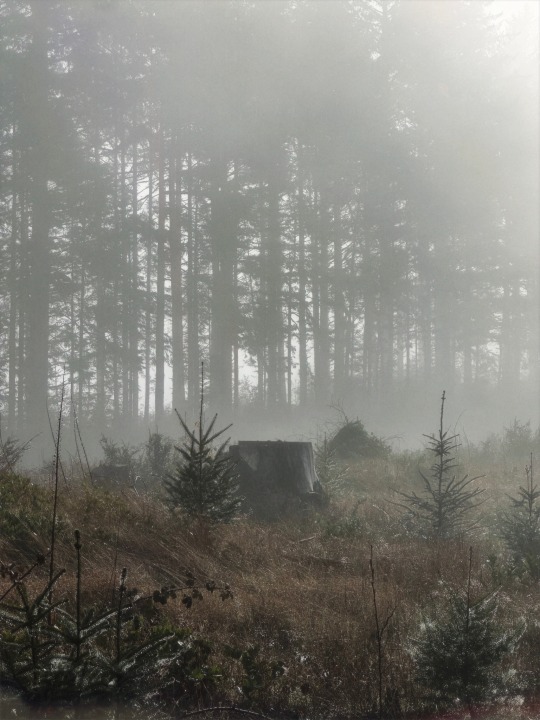
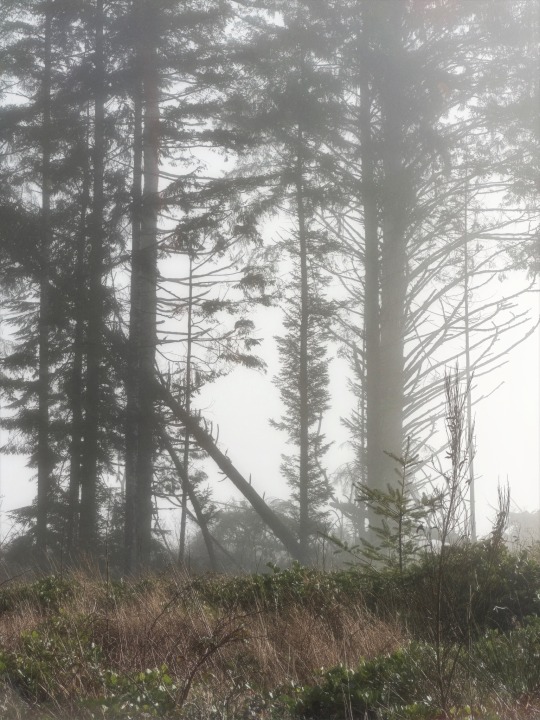
Logged forest in coastal Oregon
#photography#southern gothic#aesthetic#nature#pacific northwest#americana#rural decay#rural gothic#regional gothic#deforestation#logging
102 notes
·
View notes
Text
youtube
82 notes
·
View notes
Text


It’s still not enough
It won’t replace the one you lost
#gorrister ihnmaims#Gorrister#ihnmaims#ihnmaims gorrister#i have no mouth but i must scream#i have no mouth and i must scream#warm hearted woodsman#abnormality#abno#lobotomy corporation#lobotomy corp#library of ruina#limbus fanart#limbus oc#limbus company#limbus company oc#project moon#proj moon#e.g.o#logging
54 notes
·
View notes
Text
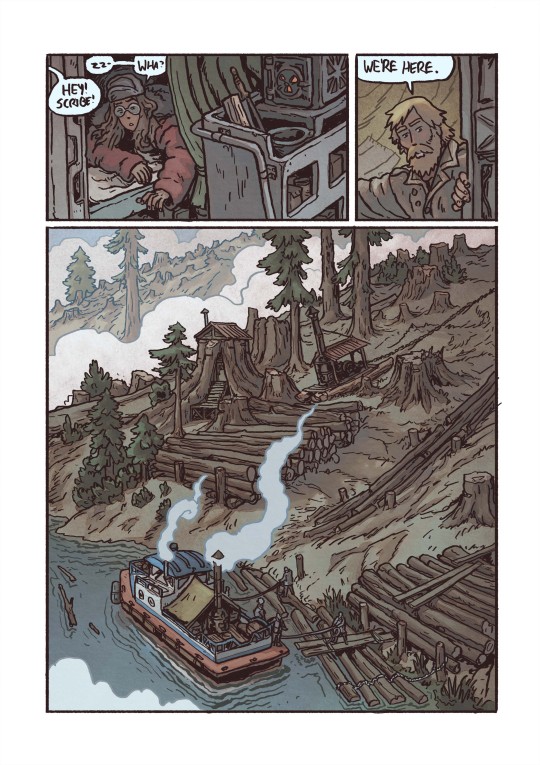

Today, our sequel to Griz Grobus - REFUGIUM - continues on webtoons! Our heroes arrive, at long last, at the logging camp...
READ IT HERE!
(colors, of course, by @the_nazavr )
58 notes
·
View notes
Photo

Future
#gas masks#couple#b&w#gif#Black and White#image#post apocalyptic#post atomic bomb#post nuclear assault#pollution#dead earth#logging#wasteland#scorched earth
1K notes
·
View notes
Text
#wisconsin#good news#nature#science#environmentalism#environment#menominee#indigenous people#indigenous#logging#sustainability
66 notes
·
View notes
Text
"Down Under, there’s a massive campaign to connect 315,000 hectares, or 750,000 acres, of coastal habitat for koalas in New South Wales into a single national park.
Now, a new logging ban to come into effect will protect 106 “hubs” across 8,400 hectares (21,000 acres) of forest where koalas in the wild are known to congregate in largest numbers.
It was a “historic step forward,” said Nature Conservation Council acting chief executive Brad Smith, describing the area as “the most important koala habitat in the world.”
The parcel is just one part, though key, of the 315,000 hectares that a coalition of conservation organizations is hoping to protect forever to ensure koalas can survive the eons.
Given the Moniker “Great Koala National Park,” the 315,000 hectares are currently split between conservation areas and state forest across an area the size of Yosemite. The GKNP would unify it all under a heavier level of protection.
Koalas need a particular kind of forest biome, one that lies close to the coast where real estate is often coveted. In this case, the 21,000 acres were saved from logging, another activity in these woods.
NSW government mapping of koala habitat confirms the GKNP proposal would protect the most important koala habitat in the region."
-via Good News Network, September 13, 2023
#australia#new south wales#koala#koala bear#conservation#national park#logging#forests#great koala national park#good news#hope#hope posting
193 notes
·
View notes
Photo
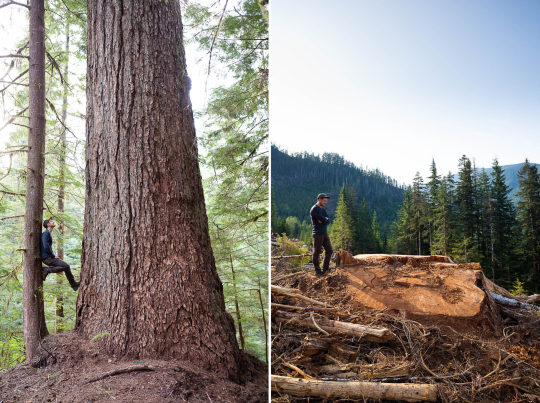
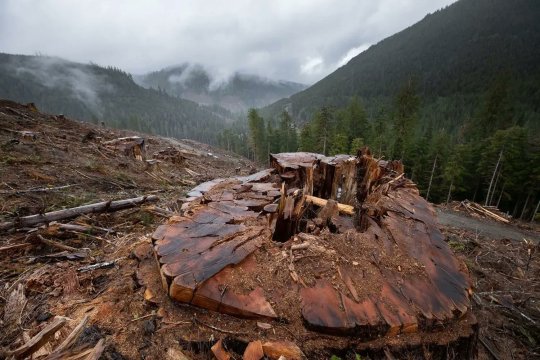
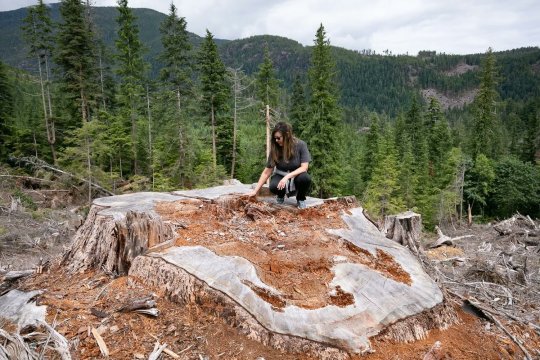
Reminder to the weak liberal-minded environmentalists: all the logging machines that make Earth bald before her time won't burn down or get smashed to pieces on their own. They might need a hand :)
#earth first!#Environment#environmetalists#deep ecology#eco anarchism#elf#Deep Green#logging#green anarchy#green politics#dark green#green anarchism#protect environment#anarcho primitivism#anprim#anprimgang#anarcho primitivist#ecology#direct action#Anti Civ#anticiv#environment and nature#deforestation#stop deforestation#protect nature
268 notes
·
View notes
Photo

July 17, 2022 - Sabotage of a company that supplies logging companies on occupied Mapuche territory. The militant Mapuche organisation CAM dedicated the action to Pablo Marchant, a CAM member who was murdered by Chilean police a year before. [video]/[link]
#mapuche#wallmapu#wallmapu libre#logging#sabotage#fire#flames#indigenous resistance#resistance#indigenous#chile#2022#gif#direct action#anti-colonialism#occupation#cam#pablo marchant
453 notes
·
View notes
Text

what a helpful fellow
62 notes
·
View notes
Photo


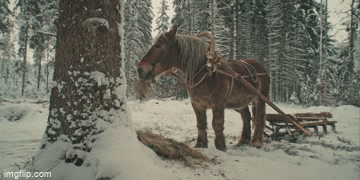
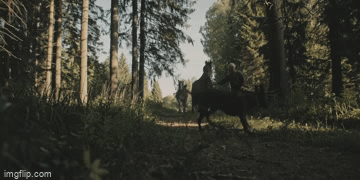
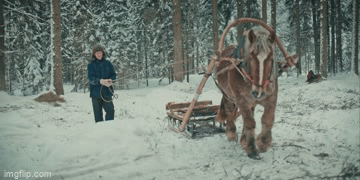
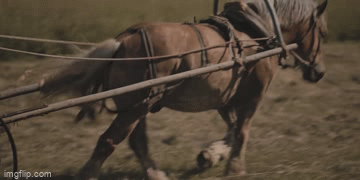

Grandfather: Full Documentary
291 notes
·
View notes
